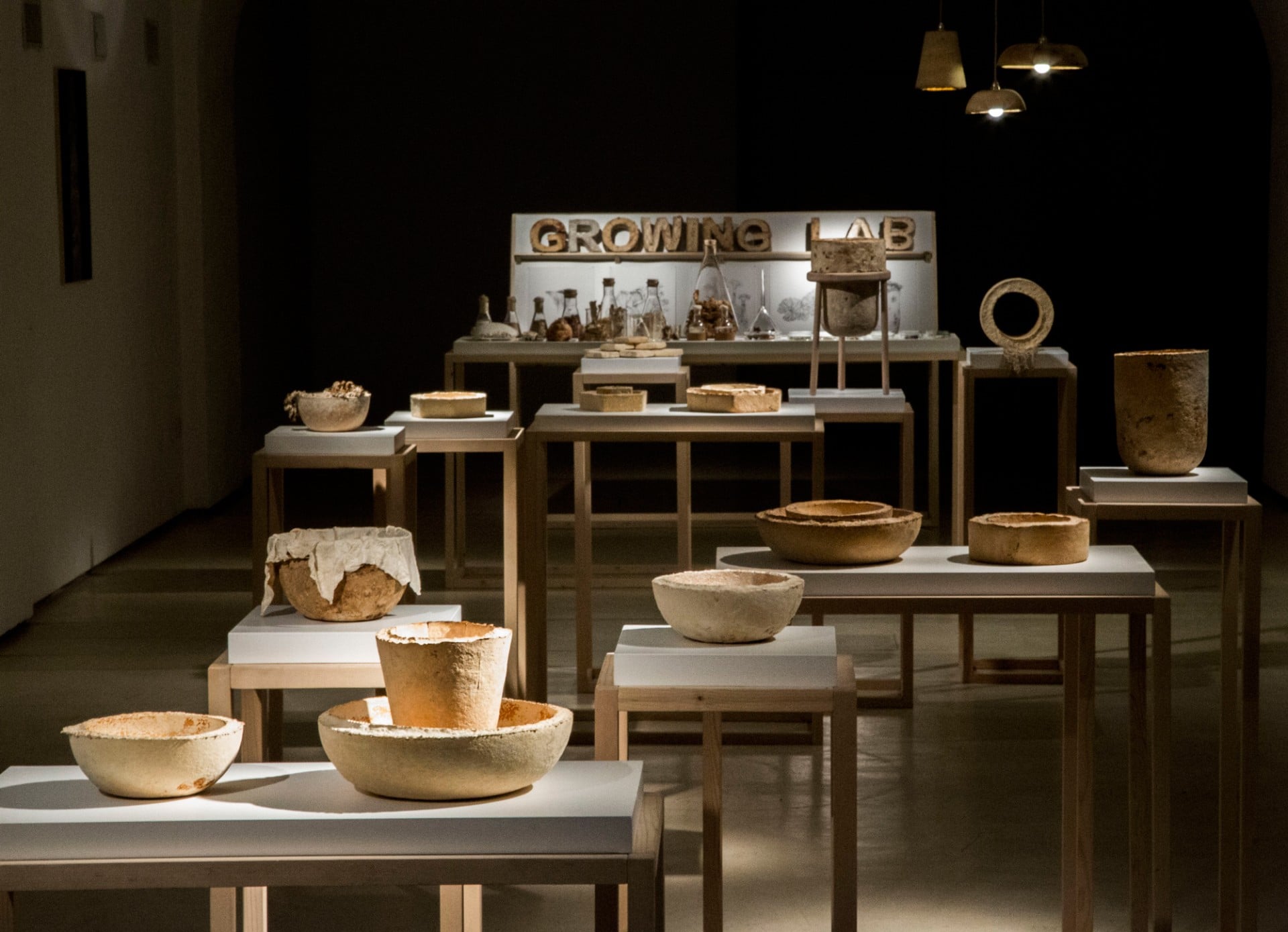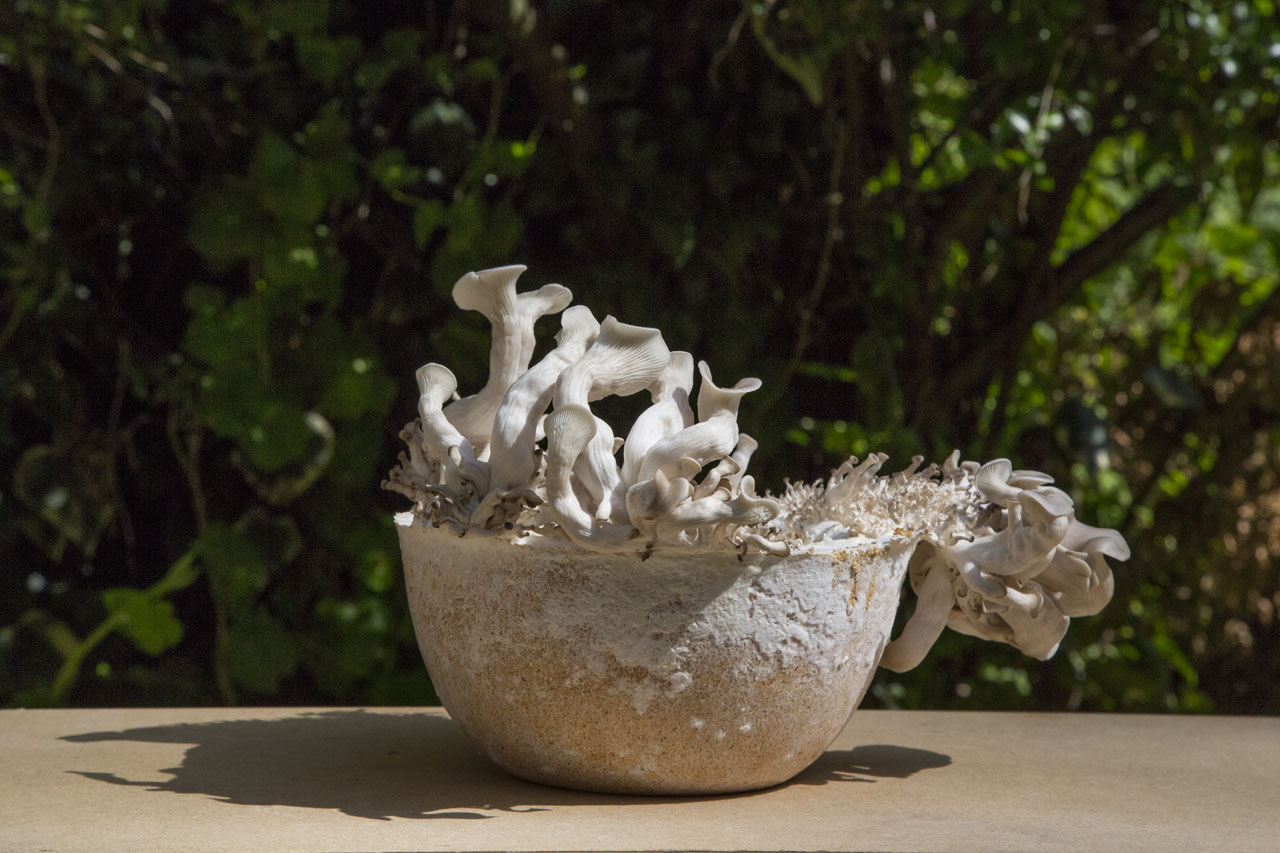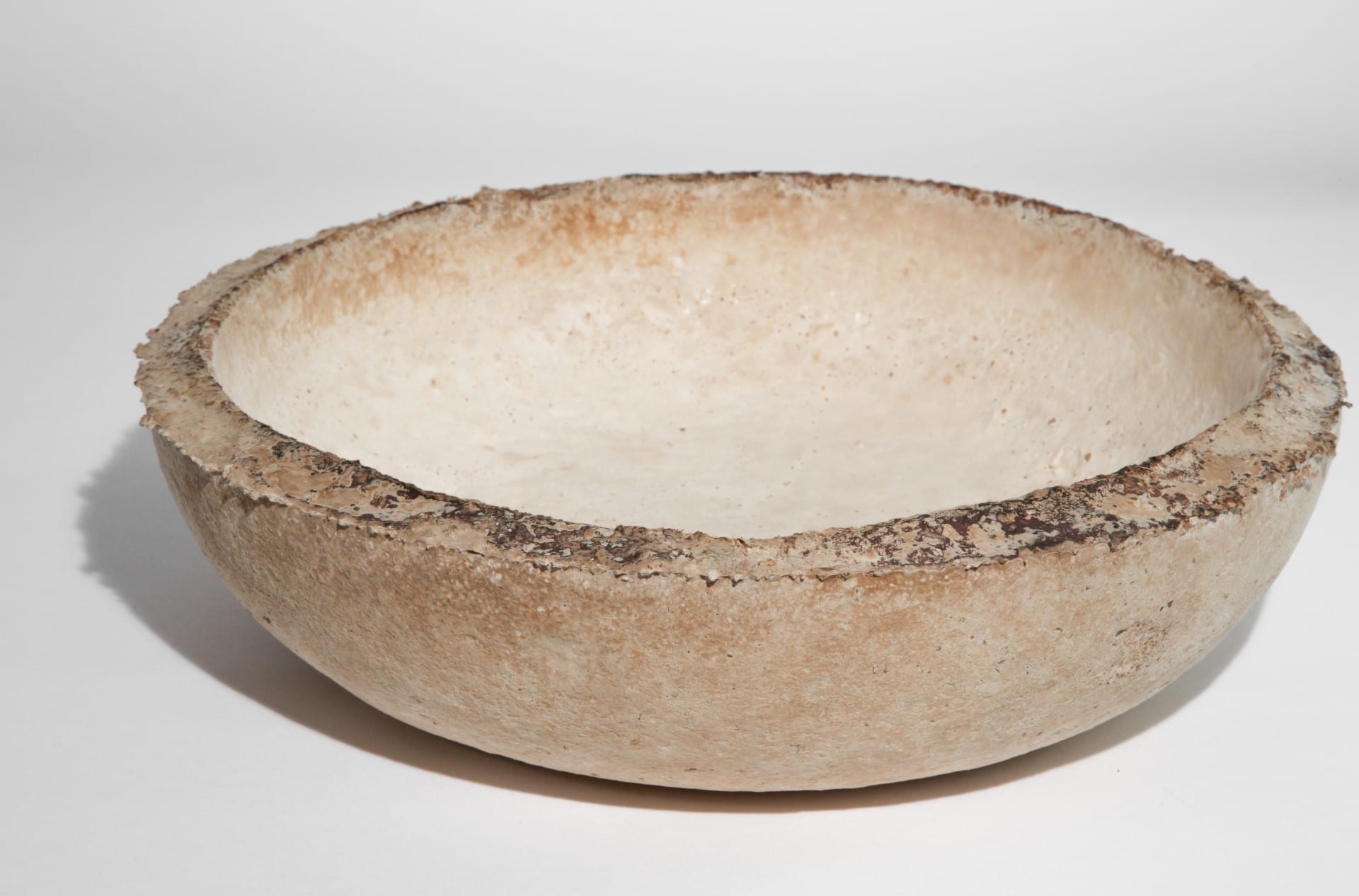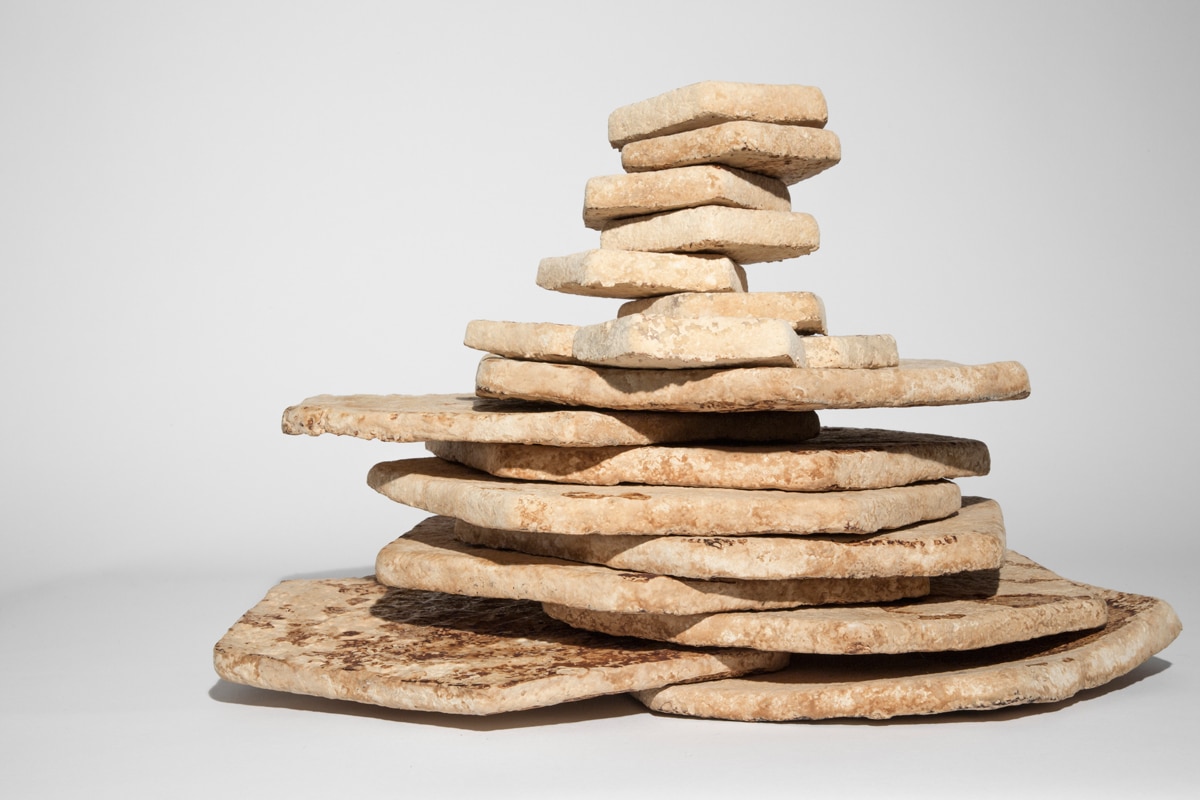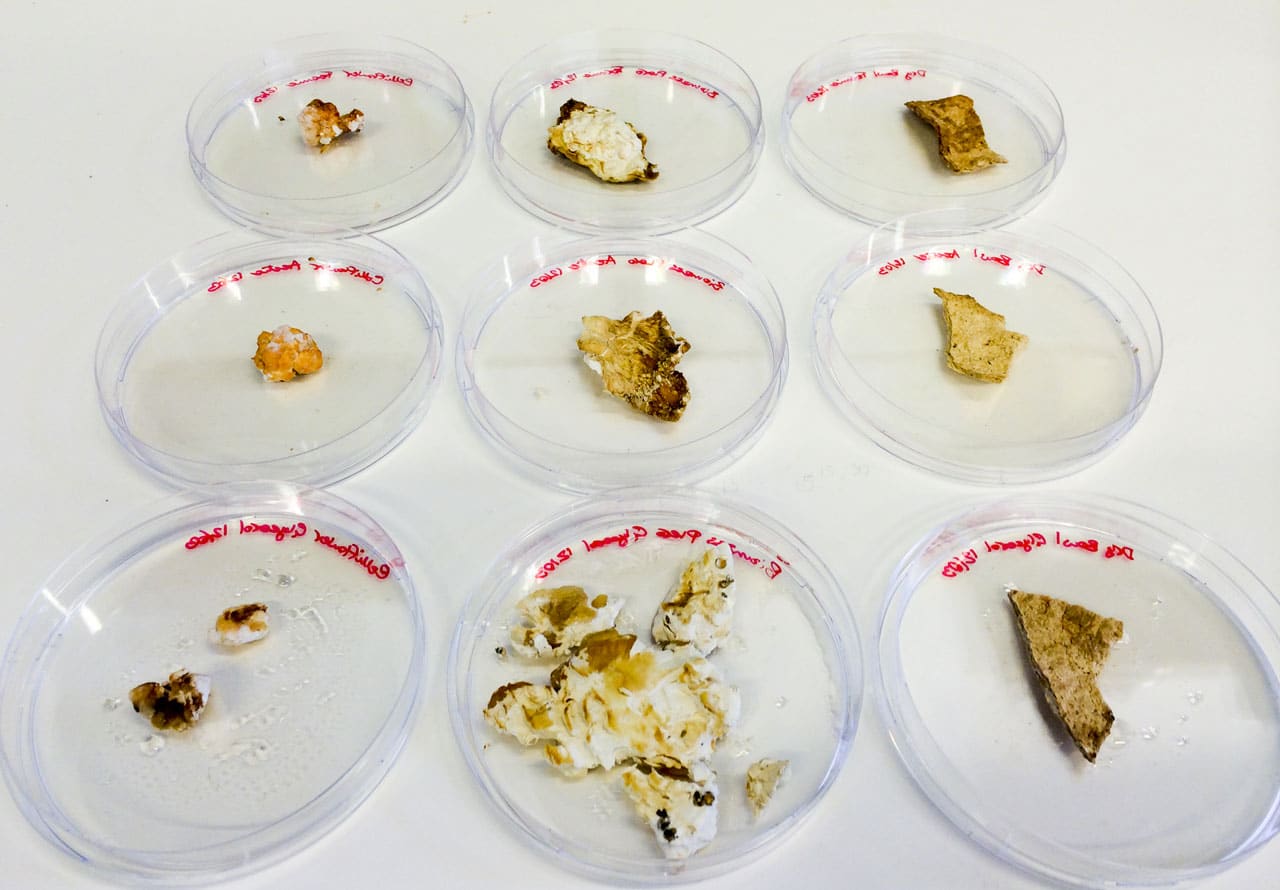Netherlands (Amsterdam)
One of the main challenges of the current century is to transform our consumption-oriented economic system into an eco-friendly and self-sustaining society, capable of minimising energy consumption, carbon emissions and the production of waste, while reducing production costs.
Addressing that is The Growing Lab, an ongoing, long-term, self-initiated research-project that actively engages with exploring and assessing methodologies for the implementation of mycelium. Mycelium is the fast-growing, vegetative part of fungi. It consists of a tight network of interconnected filamentous cells called hyphae. Thanks to its structure, the mycelium is capable of harvesting, transforming and re-distributing nutrients, both for its his own benefit (mushroom growth) and for the larger ecosystem. This means it can be used as a main agent for the development of novel materials and processes.
The mycelia of mushroom-forming basidiomycetes are highly attractive because of their tendency to grow on a wide variety substances on which enzymes act (such as agricultural waste). This gives them the potential of converting waste into novel compounds, characterised by diverse qualities, depending on the species and growth parameters. In fact, it is possible to develop materials with peculiar properties, in relation to strength, elasticity, thickness, homogeneity and water repellency.
The resulting materials – both structural and decorative – are highly interesting for the development of applications which relate to architecture, design and industry in the broadest sense. Designer Maurizio Montalti believes the fungus can be grown as an alternative to plastic, with elastic, rubbery versions and harder materials. Watch how mycelia can create our fungal futures: “I’m pretty confident in saying the next revolution is a biotechnological revolution,” says Montalti. “We are just at the beginning of it, but we are already in full swing.”
Bio
Officina Corpuscoli, founded by Maurizio Montalti in 2010, is an Amsterdam based transdisciplinary design practice, seeking to reveal unorthodox relationships among existing paradigms.
Project leader
Maurizio Montalti, Officina Corpuscoli
Support the Atlas
We want the Atlas of the Future media platform and our event to be available to everybody, everywhere for free – always. Fancy helping us spread stories of hope and optimism to create a better tomorrow? For those able, we'd be grateful for any donation.
- Please support the Atlas here
- Thank you!
